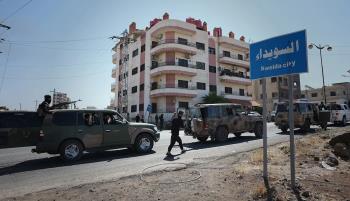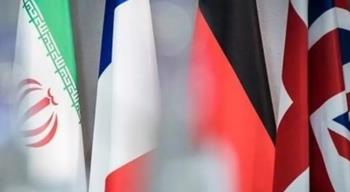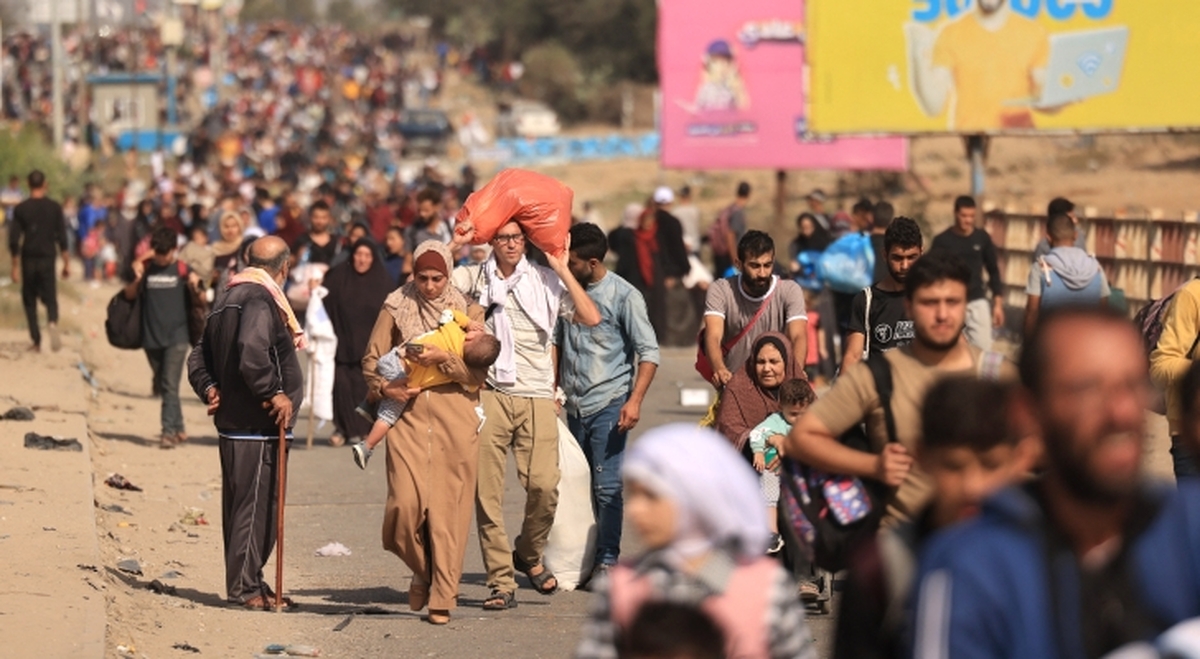Alwaght- Since the Israeli invasion of Gaza in October 2023, the media and observers during the war reported behind-the-scenes efforts by the Israeli cabinet to implement the forced relocation of Palestinians as a strategic goal and seizure of this Palestinian coastal enclave for building settlements, ensuring security of the Gaza Envelope settlements and burying the Palestinian cause forever.
Now in a new development, Axios revealed on Friday that Tel Aviv is coordinating with the US to prepare the ground for forced migration of the Gazans to three countries.
Citing informed sources, Axios reported that during Mossad chief’s Washington visit this week, he told the US Special envoy for the Middle East Steve Witkoff that Israel has reached out to Ethiopia, Indonesia, and Libya on the issue.
According to the sources, David Barnea informed Witkoff during his meeting earlier this week that some countries had expressed their readiness to accept a large number of Palestinians from Gaza.
The Mossad chief suggested that the US offers incentives to these countries and help Israel convince them.
The outlet further quoted a source as saying that Witkoff had taken a hesitant stance and it was unclear whether the US would effectively engage in the matter.
However, this comes after Trump had previously spoken openly several times about playing a role in implementing the illegal plan to forcibly relocate Gaza residents.
In October 2024, when Trump was a presidential candidate, he said in a radio interview that the Gaza Strip could be “one of the best places in the world, but the Palestinians have not been able to “benefit” from its coastal location on the Mediterranean Sea. He added that Gaza “might be better than Monaco” because it has “the best location” in the region. He returned to this idea shortly after entering the White House, describing the Gaza Strip as “a great place by the sea, with a beautiful climate ” and adding that he “might” be willing to help rebuild it. However, his first clear sign of support for the Palestinian displacement came on January 25, when he said he had spoken to King Abdullah II of Jordan about relocating more than “one and a half million Palestinians” to Jordan and Egypt until “this place is cleared.” He did the same in a phone call with Egyptian President Abdel Fattah el-Sisi.
However the White House walked back from the idea after massive opposition by the Palestinians and Arab countries.
But now it is obvious that the retreat from the idea was tactical and the US and Israel are quietly advancing the project. It is noteworthy that during Netanyahu’s Washington visit last week, Trump was asked about the plan, but he referred the journalists to the Israeli PM. Netanyahu said that Tel Aviv has “very close” cooperation with the US on the matter to find countries that would take in the Palestinians, adding that “we are close to finding several countries.”
Setting up big tents: Forcing the Gazans out under the name of voluntary migration
While global public opinion and most Arab and Islamic countries have stood up to the criminal and occupying plan to displace the Palestinians, it is quite clear that the hardline Israeli cabinet is resolved to use the opportunity of Trump’s presidency to impose a new Nakba on the Palestinians.
In this regard, Dr. Ayman al-Raqab, a professor of political science at Jerusalem University, believes that displacement is still on Netanyahu’s mind, but this time he is seeking effective mechanisms to achieve this goal, a goal that he has failed to achieve in previous periods. From Netanyahu’s perspective, the main goal of this war is to displace the population of the Gaza Strip under the pretext of destroying Hamas and restoring Israeli control over the Gaza Strip.
However, al-Raqab points out that this military approach cannot be relied on alone, because a political solution is still an urgent necessity.
In this connection, it seems that the Israeli plan is to heighten pressure on the Gazans so that they voluntarily demand to leave home and go to a safe place to save their lives.
Netanyahu said in this regard: “I think President Trump had a wonderful vision. It’s called freedom of choice. You know, if people want to stay, they can, but if they want to leave, they should be able to leave. It shouldn’t be a prison situation. It should be an open place, and give people a free choice.”
A senior Israeli official claimed the relocation would be “voluntary not compulsory” and Israel will promise that it will allow any Palestinian leaving to return to Gaza anytime they wish.
These comments are made while roughly all the Palestinians of Gaza during war have been displaced internally several times and most of Gaza buildings have been damaged or fully destroyed. Meanwhile, the Israeli cabinet, having unquestioned support of the West, does not allow food and aid to enter the war-ravaged region and bombs the lines of people waiting for food to ensure that meager supplies of food do not reach the people.
In the latest move to increase pressure on Gaza residents and force them to leave the Strip, Israeli media have reported in recent days that they are implementing a plan called “Humanitarian City.”
According to this plan, Tel Aviv is said to be seeking to transfer a total of two million Gaza Strip residents to a small area near the border with Egypt.
Defense Minister Yisrael Katz revealed the details of the plan at a press conference, saying that the plan is to create a closed zone in the south of the Gaza Strip during a possible 60-day ceasefire.
According to Israeli media reports, the proposed city will be built between the Philadelphi and Morag corridors near the Egyptian border and will later serve as the first stage of the relocation of residents from the Gaza Strip under what the government calls “voluntary migration.”
He explained that the city “will consist of a huge complex of camps and permanent structures, infrastructure will be built there, and Israel will focus more of the humanitarian aid sent to the Gaza Strip on the city, with the aim of attracting Palestinians to the area.”
The first phase of the plan aims to relocate approximately 600,000 displaced Palestinians to the area, along with the establishment of four humanitarian distribution centers by international organizations. According to Katz, the entire population of Gaza will be relocated later.
Israeli media say that the Gazans humanitarian city will be subject to security supervision to ensure they are not affiliated with Hamas resistance movement.
Channel 12 of Israel described the potential region a “city of enormous tents” that will result in return of military state to Gaza.
Experts around the world agree that it will become a detention center similar to the Nazi concentration camps where Jews were held during World War II.
The plan has raised concerns in Egypt and many Western countries that Israel is preparing for a mass expulsion of Palestinians from Gaza, something Netanyahu’s hardline coalition allies and many members of his own party have been pursuing for years.
The United Nations Relief and Works Agency for Palestine Refugees (UNRWA) has described the project as a “concentration camp,” and Amnesty International has warned that the plan amounts to a war crime.
The estimated cost of the plan is between 10-20 billion shekels ($3-$6 billion), and given public anger in the occupied territories over the mounting economic costs of the two-year war, it is clear that Tel Aviv is designing it in the short term to force Palestinians into displacement.
Ethiopia and Indonesia opposed to relocation
Aware of the international opposition to forces migration of Gaza people, from several months ago Netanyahu instructed the Mossad to find countries willing to take in large numbers of Palestinians.
In this regard, the names of various countries have been mentioned for months, especially Trump mentioned Egypt and Jordan, and at one point the Western and Israeli media mentioned countries such as Somaliland, Bosnia and Malaysia as candidates.
However, Ethiopia, Indonesia and Libya had not been mentioned before. While the head of Mossad has claimed to support these countries financially in return for a green light, analyses show the opposite of this claim.
Ethiopian journalist Abu Hayes, in an interview with the Egyptian Telegraph newspaper, said that Ethiopia cannot accept Palestinian refugees from the Gaza Strip and rejected the possibility that Ethiopian Prime Minister Abiy Ahmed would accept the proposals made in the Western media. According to the journalist, no tribe accepts the resettlement of refugees.
Abu Hayes listed the reasons for Ethiopia’s inability to accept these refugees as follows: the first is the tribal and ethnic nature of Ethiopia, as no tribe or ethnicity accepts the settlement of these refugees in its lands, especially given the wars and tribal conflicts over land.
The Ethiopian journalist, who is of the Afar ethnicity, added that there is a security dimension that prevents the acceptance of Palestinian refugees in various regions of Ethiopia, noting that accepting these migrants, in addition to exacerbating the economic crisis that the Ethiopian economy is facing, also increases security crises and makes it impossible to host hundreds of thousands of refugees on a permanent basis.
He held that Ethiopia is itself a country from which people migrate to other country due to security and economic challenges and it is not a country that accepts migrants.
Concerning Indonesia as the Muslim world’s most populated country, there is no motivation to contribute to this occupational plan. People and government of this country are opposed to occupation and support pro-liberation struggles of the Palestinians. Earlier in January, Jakarta dismissed a rumor suggesting that the country had accepted an American proposal to settle Palestinians.
The idea of filling Indonesia’s uninhabited islands with refugees has been rejected by Jakarta before, and even as the Rohingya crisis in Myanmar escalated, similar proposals faced fierce domestic opposition. The opposition was so great that the Indonesian coast guard dismissed reports that Rohingya refugee boats had sunk or caught fire.
Even before Indonesia, the Israelis had tried to get Malaysia to take in displaced Palestinians as part of a humanitarian partnership under the guise of rehabilitating the wounded and survivors of war, but that plan, too, went nowhere.
But it should be said that even if Washington and Tel Aviv manage to persuade some countries to partner the plan, the occupiers seem to have ignored the reality that the people of Gaza will stand firm against such plots as they have so far foiled all the projects by the Israeli army for forced migration from their mother land over the past two years.



























